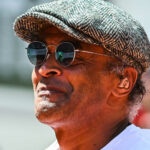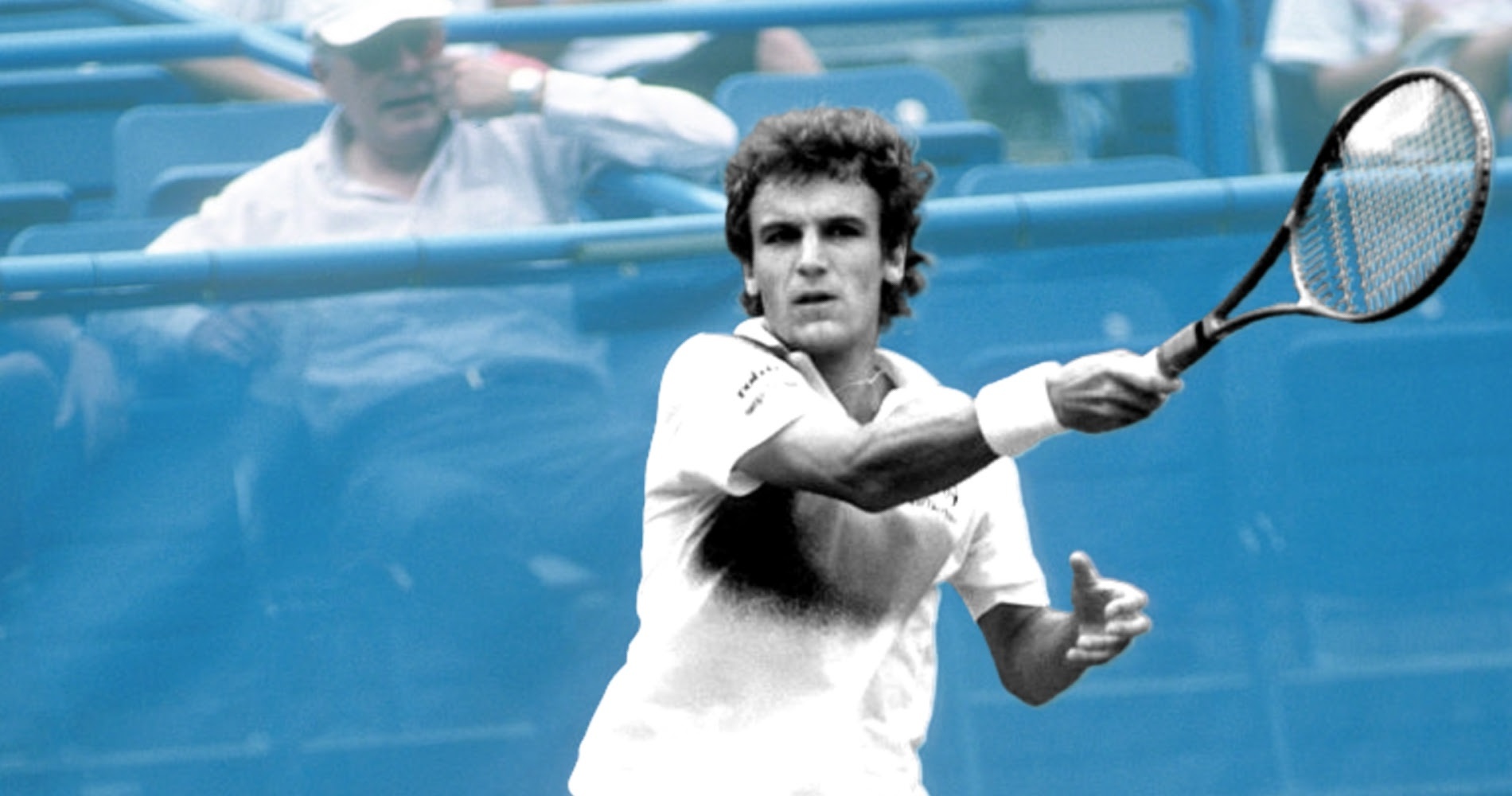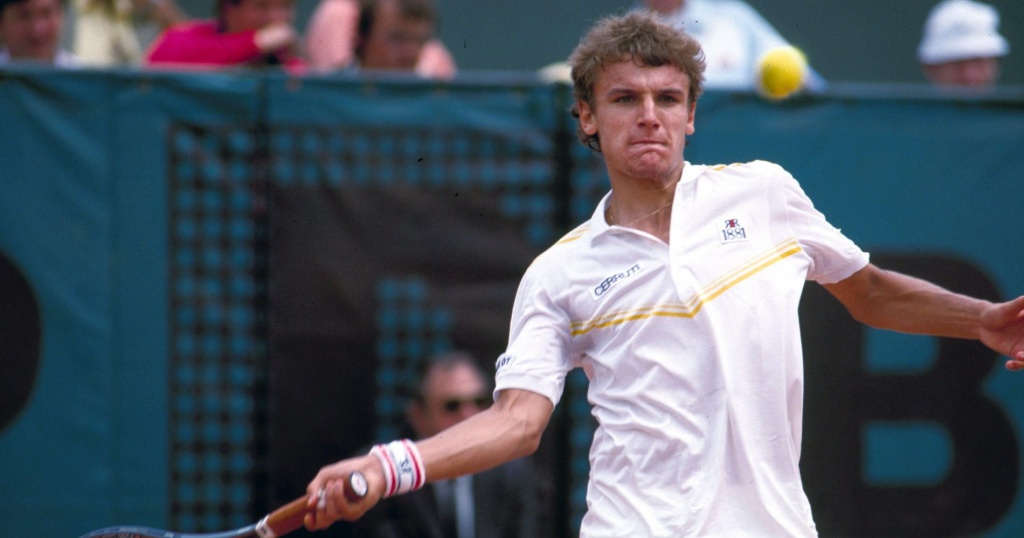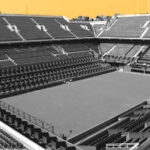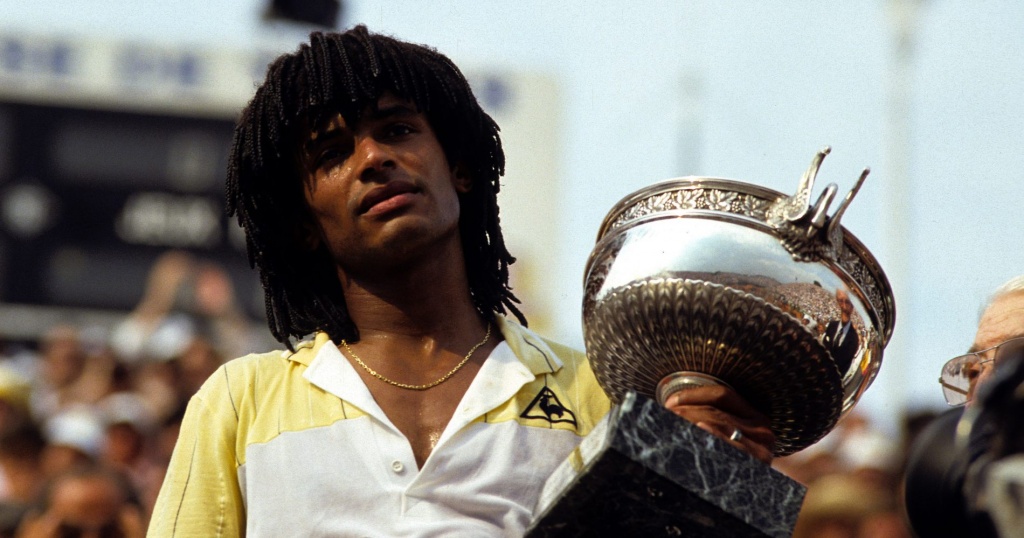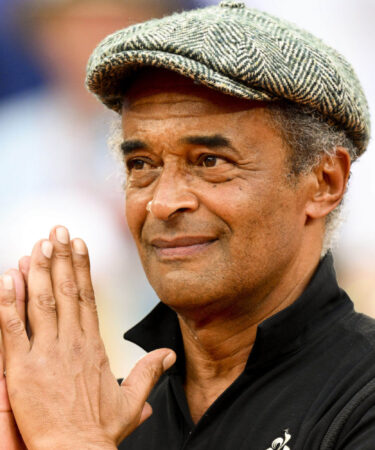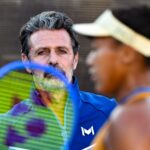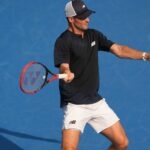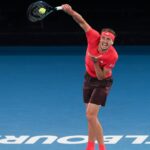June 5, 1983: The day Yannick Noah restored French glory in Paris
Every day, Tennis Majors takes you back in time to relive a tennis event which happened on this specific day. On June 5, 1983, Yannick Noah sent the whole of France into delirium as he became the first Frenchman to win the Roland-Garros title in the Open Era
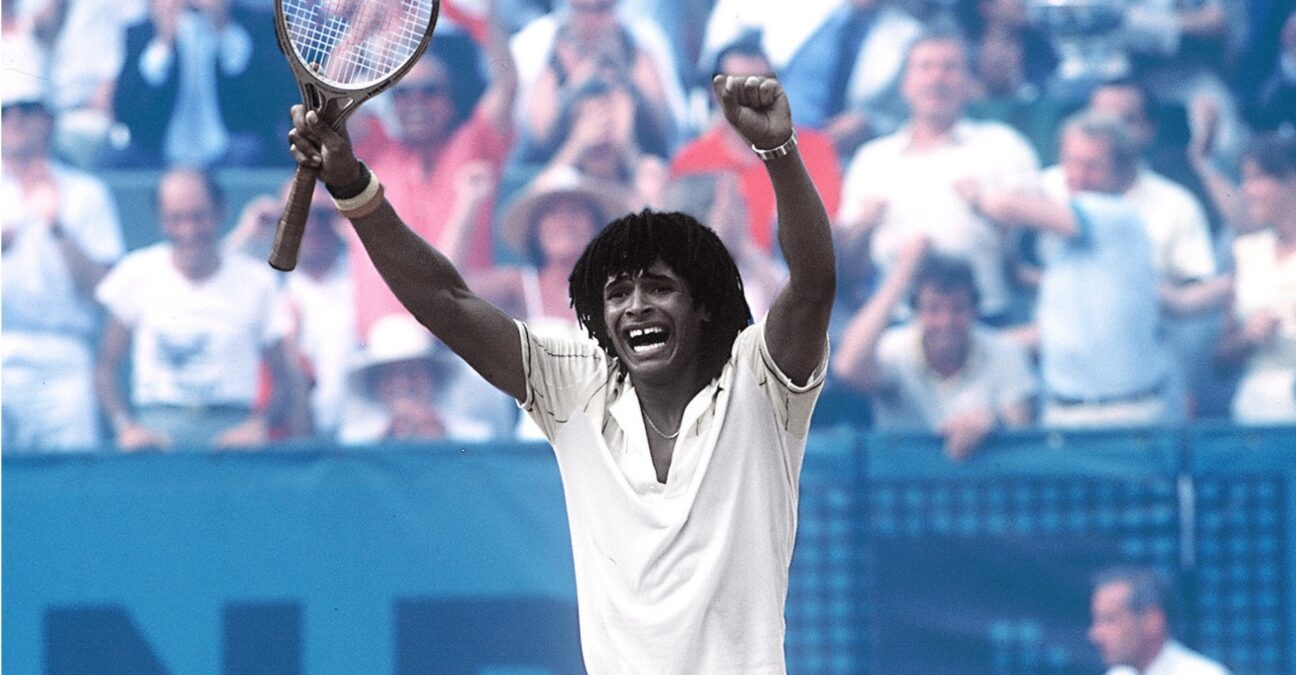 Yannick Noah won the French Open on June, 5, 1983.
Yannick Noah won the French Open on June, 5, 1983.
What happened exactly on that day?
On this day, June 5, 1983, Yannick Noah defeated Mats Wilander, 6-2, 7-5, 7-6, in the Roland-Garros final.
Aged 23, Noah became the first Frenchman to triumph at home since Marcel Bernard in 1946. His victory was a milestone in the history of French sport, especially since he has remained, to this day, the last French male player to claim a Grand Slam singles title.
Noah’s triumph would also be remembered as the last time a player won Roland-Garros while consistently serving-and-volleying and the last time a player claimed a Grand Slam title using a wooden racquet.
The players: Yannick Noah and Mats Wilander
- Yannick Noah: The charismatic Frenchman
Yannick Noah was born in 1960 in Sedan in the north of France, but his family moved back to Cameroon soon after he was born and that was where he grew up. Young Noah started playing tennis without many aspirations to become a great player, as there were only eight tennis courts in the entire country.
However, a meeting with Arthur Ashe, who had come to play an exhibition match in Yaoundé in 1971, changed the course of his life. The American, who was the first black player to have claimed a men’s singles major title, gave Noah a helping hand and the young man soon came to France to become a professional tennis player.
Noah started his career in 1978, claiming his first title on the tour in Manilla, Philippines. He improved constantly, and in 1981, he reached the quarter-finals at Roland-Garros and fell to Victor Pecci, after defeating Guillermo Vilas in the fourth round. In 1982, it was again Vilas that toppled him in the quarter-final at Roland-Garros. That year, Noah led the French Davis Cup team to its first final since 1933, where they were defeated by the Americans.
In 1983, he had become a serious contender for the Roland-Garros title by winning two clay-court tournaments, the first one in Madrid, and the second in Hamburg, which was at the time the biggest title of his career. There, Noah would beat Jose Higueras in the final (3-6, 7-5, 6-2, 6-0). At the time, he was ranked No 6 in the world, and was by far the best French player on the tour.
- Mats Wilander: The Sweet Swede
Mats Wilander, born in 1964, had been very successful at a particularly young age. In 1982, aged only 17 years and 9 months, he had become the youngest player ever to win a Grand Slam trophy, edging clay-court legend Guillermo Vilas in the final (1-6, 7-6, 6-0, 6-4).
Wilander had also made himself famous for a memorable act of sportsmanship earlier in the tournament. In the semi-final against Jose-Luis Clerc, on his first match point, he reversed a call that would have sealed his victory after the umpire had already announced “game, set and match.”
In 1982, in a Davis Cup quarter-final, Wilander played the longest match of the Open Era, losing after six hours and 22 minutes to John McEnroe (9-7, 6-2, 15-17, 3-6, 8-6). Wilander was the fifth seed at Roland-Garros in 1983.
The place: Stade Roland-Garros
The story took place in Roland-Garros, Paris. The stadium, located in the west of Paris at the edge of the Bois de Boulogne forest, had been hosting the French Grand Slam since 1928. It was the first and now the only Grand Slam to be played on clay, the slowest surface, which made it the hardest tournament to win from a physical perspective.
Wilander was the defending champion and had the perfect game style to prevail on red dirt. He was extremely consistent, and his physical condition was among the best of his time. On the other hand, Noah played serve-and-volley, a strategy that had not been successful at Roland-Garros over the past decade.
The facts: Noah fulfills a personal and a nation’s dream
Wilander, despite his young age, had already experienced a successful Grand Slam final, the year before, when he defeated Guillermo Vilas for the Roland-Garros title. However, the circumstances were very different this time around. Not only did Wilander have to face the local favourite Noah, but he would have to grapple with the delirium of all of France which stood behind him as he mounted his quest to become the first French male to win Roland-Garros in 37 years.
Noah had himself said that he was on a mission. He had put himself through a very rigorous preparation with only one goal: conquer the Holy Grail of French tennis players, The Musketeer’s trophy. So far, his efforts had paid off.
After he defeated world No 3 Ivan Lendl in the quarter finals, the dream started to take shape and, in the semi-final, he destroyed fellow French player Christophe Roger-Vasselin, 6-3, 6-0, 6-0. But Noah still had the defending champion Wilander standing between him and his dream. Was he going to be able to handle the pressure of carrying the hope of an entire nation and defeat such a worthy adversary?
Noah responded to that question in just 36 minutes, by taking a lopsided first set, 6-2. It was already apparent that the circumstances were not going to prevent him from playing his attacking game in this final. The Frenchman had dreamt of the final the night before and had seen himself losing. He hated that feeling so much that Wilander’s passing shots were not going to stop him, and soon he was leading 5-3 in the second set.
It might have been a cakewalk so far, but the Swede was not the kind of player to back down from a challenge. He put his amazing defensive skills to work and clawed his way back to even the score at five games apiece. Noah kept his nerves under control and sealed the second set 7-5 much to the crowd’s delight.
The third set proved to be a thriller, with Noah starting to show signs of fatigue as nerves creeped in. He was so close to his dream, but steely Wilander was gaining in confidence. An intense, back-and-forth fight took the players to a tie-break.
On his second match point, after two hours and 25 minutes of play, Noah followed his serve to the net, but he did not have to volley: Wilander’s return was off-the-mark. Noah could kneel on Court Philippe Chatrier’s fabled clay and rejoice: he had fulfilled his dream and given French tennis its first Grand Slam men’s singles champion since 1946.
In a joyful display of emotion, his father, Zacharie, leaped over the fence and stormed onto the court to jump into his arms and celebrate the moment. In an ultimate symbolic gesture, the Musketeer’s trophy would be handed to him by Marcel Bernard himself; he was not the last Frenchman to have won Roland-Garros anymore.
What next?
- Noah feels pressure of expectations but captains France to Davis Cup and Fed Cup glory
At the time, Noah’s triumph at Roland-Garros would have a great impact across the entire country. His achievement would be all over the media and Noah would be considered a national hero, to the point where it would perhaps become too big of a responsibility to carry for a 23-year-old man. He had made his dream come true at a young age and he would never find the energy to light the same fire in his racket again.
Noah would remain a top 10 player for some time, reaching two more quarter-finals at Roland-Garros and the semi-final at the 1990 Australian Open, and when he retired from the game, he would own 23 titles in singles and a Roland-Garros crown in doubles in 1984, which he won partnering compatriot Henri Leconte.
Noah would soon become a successful Davis Cup captain, leading his team to three titles, in 1991, 1996 and 2017. The 1991 title would remain one of his major achievements, because the French team shocked an American dream team featuring legends including Pete Sampras and Andre Agassi. Noah would also become the captain of the French Fed Cup team which won the competition in 1997. Last but not least, the talented Frenchman would also start a successful career as a singer and sell several million records.
- Wilander ends career with seven Grand Slam singles titles
Wilander would become known as the second greatest male player of the 1980s, behind Ivan Lendl. His peak year would undoubtedly be 1988, when he would reach the world No 1 ranking after claiming three out of the four Grand Slam titles. That season he would end up edging Leconte in the Roland-Garros final. In total, Wilander would win Roland-Garros three times and claim seven Grand Slam titles, the only one missing from his list of achievements being Wimbledon, where he would never go past the quarter-finals. After his career, Wilander would stay involved in tennis as an analyst for TV channels and papers such as L’Equipe.
